Being in a car accident is stressful enough, but not having insurance at the time can make it even worse. If you’ve just been in an accident in San Bernardino or Riverside County and need to get insured quickly, you’re not alone. This guide will provide you with the essential information about getting same-day car insurance, understanding the legal implications, and protecting yourself.
At The Law Offices of Edgar Lombera, we understand the stress and confusion that follows a car accident. Our experienced team is here to provide you with valuable insights and actionable steps to navigate this challenging time. By the end of this article, you’ll have a clear understanding of your options, how to maximize your compensation, and why consulting a car accident lawyer is crucial.
One of the most common questions we hear is whether it’s possible and legal to buy car insurance from a car insurance company immediately after an accident. While you can purchase car insurance at any time, car insurance policies typically do not cover events that occurred before the policy’s effective date. Attempting to file a claim for a pre-existing accident could be considered insurance fraud, which carries severe legal consequences.
It’s essential to understand that insurance companies have sophisticated methods to detect fraudulent claims. They often investigate the timing of when the insurance policy was purchased relative to when the accident happened. Therefore, buying same-day insurance after an accident to cover that specific incident is not only ineffective but also illegal.
Car insurance is essentially a contract between a car owner and an insurance company. Under this agreement, the insurance company commits to covering certain losses as specified in the car insurance policy. This coverage extends to the car owner, other drivers listed on the policy, and anyone the owner permits to drive the car. However, it’s important to note that individual drivers can be explicitly excluded from a car insurance policy, and there may be other exclusions that apply.
In the United States, nearly every state mandates that vehicle owners carry some level of car insurance. At a minimum, vehicles must have liability insurance, which covers damages for which the driver of the insured vehicle is deemed responsible. Liability insurance typically includes coverage for bodily injury and property damage. Beyond liability insurance, car insurance policies may offer additional types of coverage, such as:
Uninsured/Underinsured Motorist (UM/UIM) Coverage: Protects you if you’re involved in an accident with a driver who has no insurance or insufficient coverage.
Medical Payment/Personal Injury Protection (PIP) Coverage: Covers medical expenses for you and your passengers, regardless of who is at fault.
Comprehensive Coverage: Handles damages from non-collision incidents like theft, vandalism, or natural disasters.
Insurance policies come with different levels of coverage, including minimum and maximum limits. It’s crucial to understand that the insurance company is only obligated to pay up to the maximum limits specified in the policy. Knowing these limits can help you ensure that you have adequate protection in case of an accident.
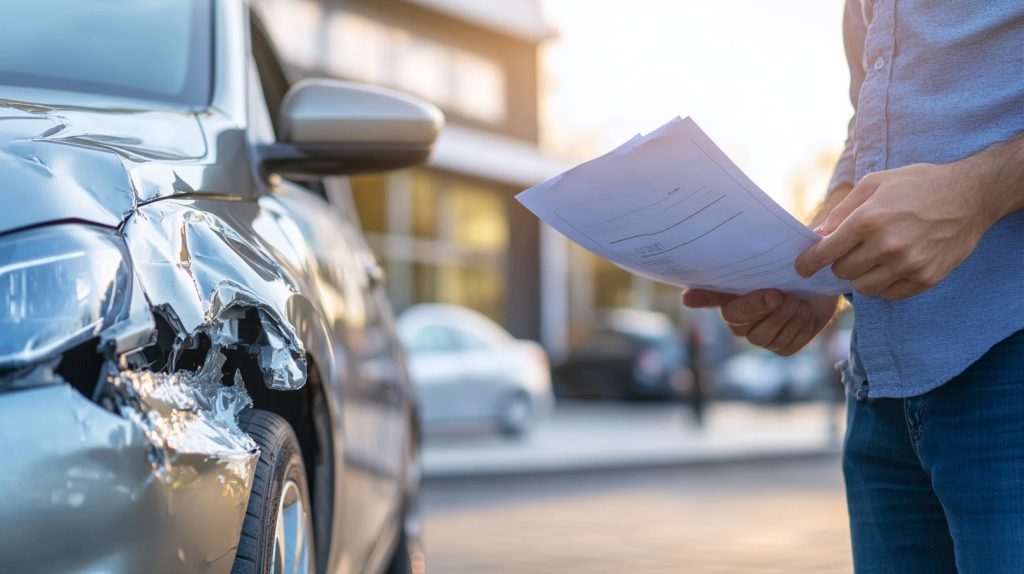 Liability Insurance Requirements
Liability Insurance RequirementsCalifornia law mandates that all drivers carry minimum liability insurance coverage. This includes:
$15,000 for injury or death to one person (bodily injury)
$30,000 for injury or death to more than one person
$5,000 for property damage
This means that if you’re involved in an auto accident, your liability coverage will cover the medical expenses and property damage incurred by the other driver up to these limits.
If you’re caught driving without car insurance, you may face:
Fines ranging from $100 to $200 for the first offense
Vehicle impoundment
Suspension of your driver’s license
Additional penalties for repeat offenses
Moreover, driving without car insurance can severely limit your ability to recover damages in the event of an accident, even if you were not the at-fault driver.
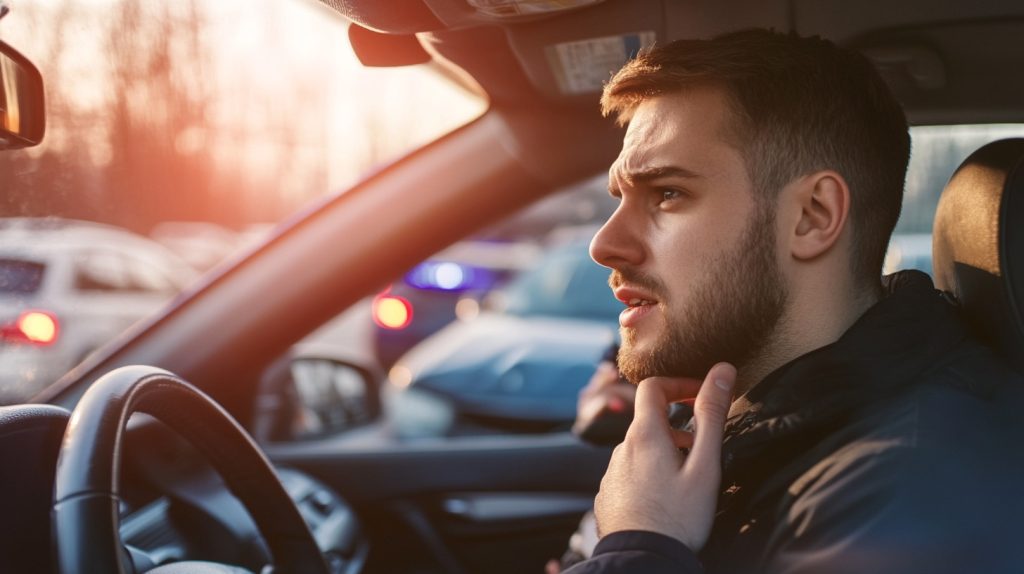
When you file an insurance claim, the auto insurance provider will:
Review the police report to understand the circumstances of the accident
Assess property damage and injuries sustained
Verify the timing of your insurance policy purchase
Check driver’s license numbers and license plate numbers
Insurance companies are vigilant about detecting insurance fraud. They use advanced algorithms and employ investigators to ensure that all claims are legitimate. Filing a claim for an accident that occurred before you purchased your auto insurance policy can lead to serious legal repercussions.
This optional insurance coverage protects you if you’re involved in an accident with an uninsured motorist or a driver with insufficient coverage. In California, it’s estimated that about 16% of drivers are uninsured, making this coverage particularly important.
Uninsured Motorist Coverage: Covers your medical expenses, lost wages, and property damage when the other driver has no insurance.
Underinsured Motorist Coverage: Kicks in when the at-fault driver doesn’t have enough insurance to cover all your damages.
Including these coverages in your car insurance policy can provide significant financial protection.
Collision Insurance: Covers damages to your vehicle resulting from a collision, regardless of who is at fault.
Comprehensive Coverage: Handles damages from non-collision incidents like theft, vandalism, or natural disasters.
These types of coverage can provide additional peace of mind but are typically optional unless required by a lender or lessor.
Car insurance laws vary from state to state. One key difference is whether a state follows a ‘no-fault’ or ‘at-fault’ system for handling claims. In ‘no-fault’ states, your own insurance covers your medical expenses and lost wages after an accident, regardless of who was at fault. This is usually done through a coverage called Personal Injury Protection (PIP). ‘At-fault’ states, like California, make the driver who caused the accident responsible for paying for the damages to others involved. This often means determining who was at fault, which can sometimes lead to disputes and lawsuits.
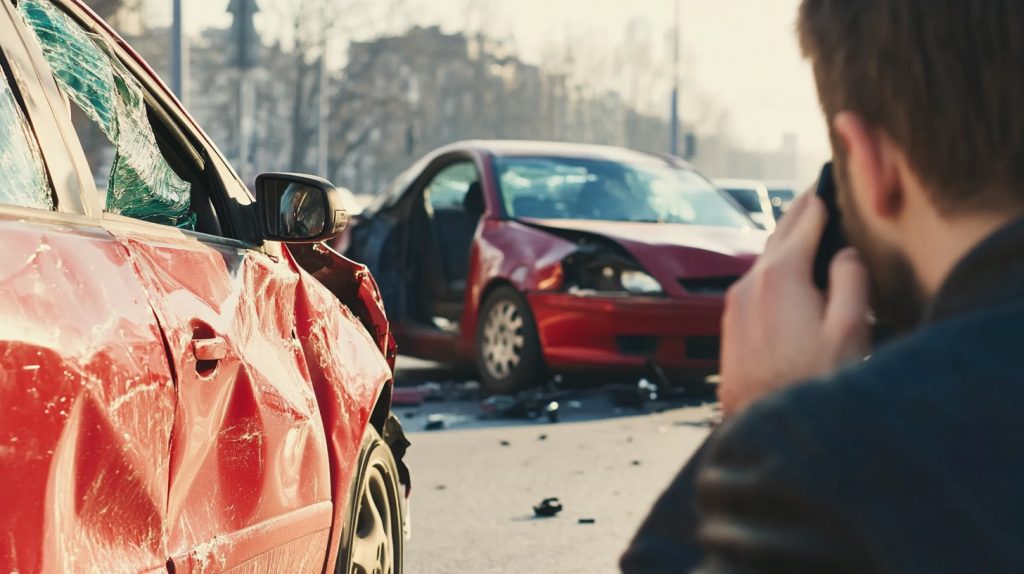
Being involved in a car accident can be a frightening and disorienting experience. Knowing what steps to take immediately can help protect your safety and legal rights. Here’s a guide to follow:
Ensure Safety First:
Check yourself and any passengers for injuries. If anyone is hurt, call 911 immediately.
If possible, move your vehicle to a safe location away from traffic.
Turn on your hazard lights to alert other drivers.
Contact the Authorities:
Call 911 to report the accident, even if there are no apparent injuries. A police report is crucial for insurance claims and legal purposes.
When the police arrive, provide them with accurate and concise information about the accident.
Exchange Information:
Obtain the following information from all other drivers involved:
Full name
Driver’s license number
Insurance company and policy number
Contact information (phone number and address)
Vehicle information (make, model, year, license plate number)
If there are any witnesses, get their contact information as well.
Document the Scene:
Use your phone or camera to take photos and videos of the accident scene from various angles.
Document the damage to all vehicles involved, as well as any skid marks, road conditions, traffic signs, and other relevant details.
If you have a dashcam, ensure the footage is saved.
Seek Medical Attention:
Even if you don’t feel injured at the scene, it’s important to seek medical attention as soon as possible. Some injuries may not be immediately apparent.
Keep records of all medical treatments, diagnoses, and expenses related to the accident.
Notify Your Insurance Company:
Report the accident to your insurance company as soon as possible. Provide them with accurate information and any documentation you have gathered.
Be prepared to answer their questions about the accident.
Consult with a Car Accident Lawyer:
If you have sustained injuries or significant property damage, it’s advisable to consult with an experienced car accident lawyer. They can help you understand your rights, navigate the claims process, and protect your interests.
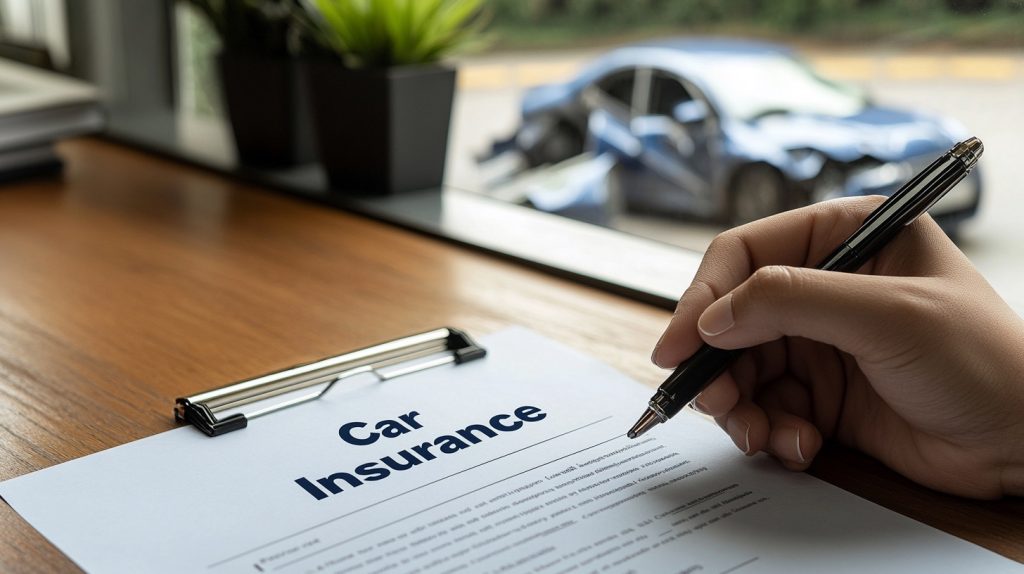
Seek medical attention for any injuries sustained. Your health is the top priority.
Collect license plate numbers, driver’s license numbers, and insurance information from all parties involved.
Document the scene by taking photos and noting weather conditions, road hazards, and any other relevant details.
Obtain the other driver’s insurance company and insurance policy number.
File a police report to have an official record of the incident.
Notify your insurance carrier about the accident as soon as possible.
Provide only necessary information and avoid speculating about fault.
Be cautious when discussing the accident; anything you say can impact your claims process.
Consult with a car accident lawyer before making any formal statements.
Keep records of all communications with the insurance company.
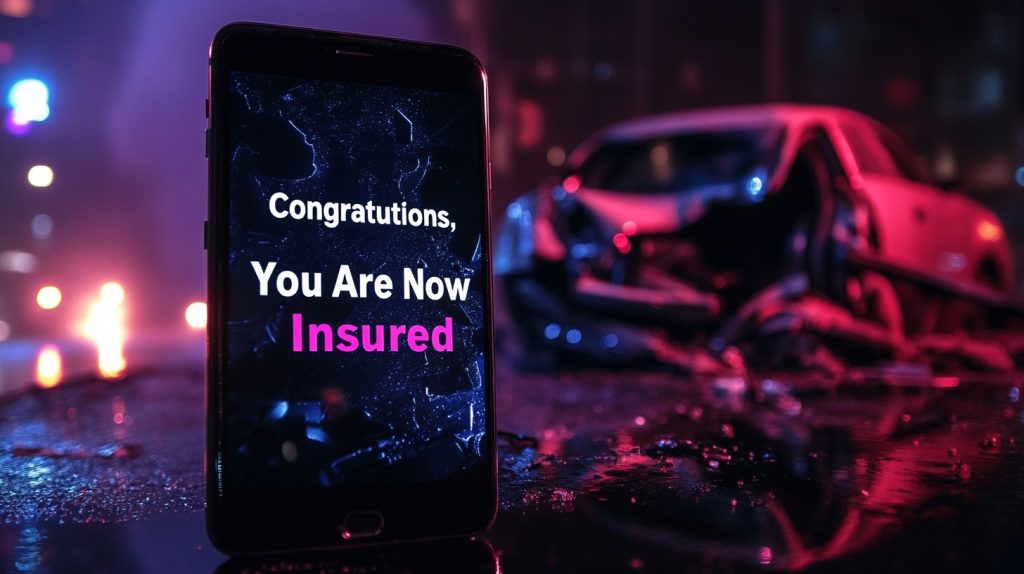
Many believe that obtaining same-day car insurance after an accident can cover the incident. However, insurance policies are not retroactive. To avoid these misconceptions, it’s crucial to compare the best car insurance companies and understand their policies. Understanding this can save you from legal troubles and financial losses.
Myth: Purchasing car insurance immediately after an accident will cover the damages.
Fact: Car insurance companies will not cover accidents that occurred before the policy’s effective date.
Myth: You can change the date of the accident to match the policy start date.
Fact: Altering the date is illegal and constitutes insurance fraud.
Attempting to get coverage for an accident that occurred before purchasing car insurance is considered insurance fraud. Penalties include:
Fines up to $50,000
Imprisonment for up to five years
Restitution payments to the insurance company
Moreover, a fraud conviction can have lasting impacts on your life, including difficulty obtaining future insurance policies, employment challenges, and loss of professional licenses.
After a car accident, especially if you’re dealing with injuries or significant property damage, it’s often wise to seek the assistance of an experienced car accident lawyer.
Here’s how a lawyer can help:
Investigate the Accident: Gather evidence, including police reports, witness statements, and photos, to build a strong case.
Handle Insurance Companies: Communicate effectively with insurance adjusters and negotiate for fair settlements.
Explain Your Coverage: Help you understand your insurance policy and its limitations.
Recover Damages: Assist in recovering compensation for medical expenses, lost wages, pain and suffering, and property damage.
File a Lawsuit (If Necessary): Advise on whether filing a personal injury lawsuit is necessary and represent you in court.
Protect Your Rights: Ensure you don’t make statements that could harm your case.
At The Law Offices of Edgar Lombera, our attorneys have extensive experience handling car accident cases in San Bernardino County and Riverside County. We offer personalized legal strategies to ensure you receive the maximum compensation possible.
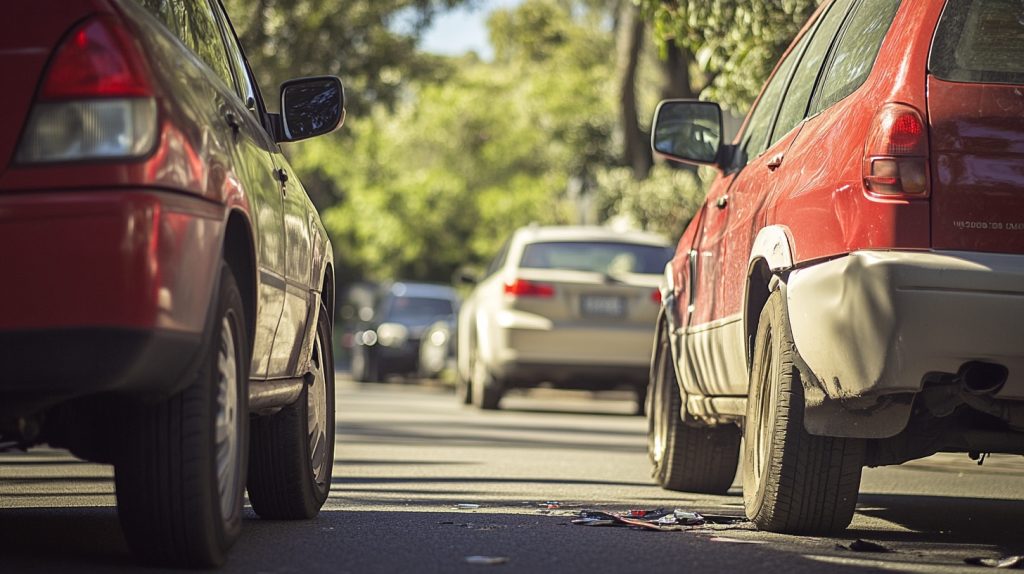
To ensure you receive fair compensation:
Document all expenses: Keep receipts and records of all medical bills, therapy sessions, and medication costs.
Track lost income: Document any lost wages due to inability to work.
Follow medical advice: Attend all medical appointments and adhere to treatment plans.
Avoid social media: Refrain from posting about the accident or your injuries online.
Consult a lawyer early: The sooner you involve a car accident lawyer, the better your chances of a favorable outcome.
Our attorneys emphasize the importance of:
Having adequate insurance coverage, including optional coverages like uninsured motorist coverage and personal injury protection.
Understanding your car insurance policy’s coverage limits and exclusions.
Knowing your rights in the event of a car accident, especially regarding insurance claims and dealing with insurance companies.
Being cautious when purchasing insurance after an accident to avoid unintentional insurance fraud.
Buying car insurance the same day as an accident won’t cover the incident. Auto insurance providers don’t cover pre-existing events. Attempting to do so can be considered insurance fraud.
It’s very difficult to file a successful claim without insurance in California. California’s “No Pay, No Play” law prevents uninsured drivers from suing for pain and suffering, and you’ll likely be held personally liable for any damages you cause.
It protects you if you’re in an accident with an uninsured motorist, covering medical expenses, lost wages, and property damage up to your policy’s coverage limits.
A lawyer can guide you through the claims process, negotiate with insurance carriers, help you understand your insurance coverage, and work to maximize your compensation.
$15,000 for bodily injury per person
$30,000 for bodily injury per accident
$5,000 for property damage
Driving without insurance in California is an infraction, not a misdemeanor. However, it can lead to fines, license suspension, vehicle impoundment, and higher insurance premiums in the future. It also makes it much harder to recover compensation if you’re in an accident.
Yes, you can buy car insurance that provides same-day coverage, but it won’t cover accidents that occurred before the policy started. It’s essential for future protection but not for past incidents.
It’s a type of insurance coverage that pays for your own medical expenses and lost wages, regardless of who is at fault in the accident.
Insurance companies use various methods, including investigating the timing of the car insurance policy purchase, reviewing the police report, and analyzing inconsistencies in statements.
Given the high number of uninsured drivers, it’s wise to include uninsured motorist coverage in your auto insurance policy to protect yourself financially.
It’s often possible to get car insurance coverage that takes effect the same day you apply, but it’s not guaranteed. Many insurance companies offer this option, and an insurance agent can help you find a company that can provide immediate coverage. You should consult with an insurance agent to expedite the process of securing a policy and ensure you have the necessary coverage for any car accidents that could happen in the future.
Keep in mind that the purpose of getting insurance now is to protect yourself from any accidents that might happen in the future. Having a policy in place will give you peace of mind and financial protection should the unexpected occur.
Navigating the aftermath of a car accident without proper car insurance coverage can be overwhelming and legally complex. Understanding your legal options in San Bernardino County and Riverside County is crucial. Remember, attempting to get car insurance the same day as an accident to cover that incident is illegal and considered insurance fraud.
At The Law Offices of Edgar Lombera, we’re committed to helping you understand your rights and options. Our expertise in personal injury and car accident cases ensures you receive the guidance you need to make informed decisions. Don’t let the lack of insurance prevent you from seeking the compensation you deserve.
Don’t navigate this complex situation alone. Reach out to our experienced team for a free consultation. We’re here to help you every step of the way.
Redlands Office: 909-915-0181
Palm Springs Office: 760-835-9353